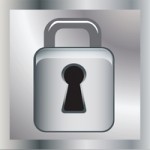 Personal banking and financial security used to be fairly straightforward. If you kept your checkbook safe then there was very little chance that anyone could ever access your savings or checking accounts. But with a significant amount of our financial activity these days being conducted online, with sometimes only a username and password necessary to access our accounts, many of us have concerns about our financial security.
Personal banking and financial security used to be fairly straightforward. If you kept your checkbook safe then there was very little chance that anyone could ever access your savings or checking accounts. But with a significant amount of our financial activity these days being conducted online, with sometimes only a username and password necessary to access our accounts, many of us have concerns about our financial security.
Fortunately, banking can still be a safe and secure activity, provided that you take the necessary steps to protect yourself.
Here is some banking advice on the most common questions about banking and security, and how to protect yourself from various threats.
How Can I Protect My Online Account? The biggest concern is protecting direct electronic access to your accounts. Online banking can be a great convenience, but it also makes it theoretically easier for a thief to gain access as well. In order to protect yourself, make your login procedure as secure as possible. Choose usernames and passwords that are difficult to guess, and which you don’t use for any other accounts or websites.
How Can I Make My Login Secure? Select the highest level of login authentication (such as a SMS text message verification to your cell phone), even if it seems like a bit more of a hassle to log in. Another tip – and something you should probably be doing anyway with as many of your online accounts as possible – is making the answers to your password recover questions as difficult as possible. For example, if the recovery challenge question is something like “what was the name of your favorite teacher?” choose an answer that no one is ever likely to guess, such as your favorite color or the name of your favorite restaurant.
How Can I Protect My Account Statements? While most account statements don’t include your full account number, they do have information that thieves may still find helpful. If possible, select to have your account statements delivered to you via e-mail or, better yet, available for you to download once you log into your account. Avoid having paper statements sent to your mailbox. Mailbox theft is often the starting point for financial crimes and identity theft.
What Protections Do I Have For My Debit Card? You’re probably aware of the anti-fraud protections on your credit card. There are similar protections for unauthorized debit card use, although you may be liable for some fees if you don’t report the unauthorized activity as soon as possible. In addition, your account funds may be unavailable until the unauthorized activity is resolved. It’s therefore important to report any unauthorized activity as soon as possible.
What Are Card “Skimmers”? At some point over the past year or two you might have heard something about credit card and debit card “skimmers.” These card skimmers are small devices that are inserted into ATMs, gas pumps and other devices where you swipe your own card. Unfortunately, these skimmers are becoming smaller and smaller, and harder to notice. Don’t use a machine that seems off, and try to use only those ATMs that are well covered by security cameras. If you have any concerns after using a machine, call your bank right away.
While modern-day banking can still be highly secure, it’s essential that you take an active role in your own personal financial security.
Tags: Banking Advice, card skimmers, Online Banking
This entry was posted
on Thursday, September 20th, 2012 at 2:25 pm and is filed under Online Banking.
You can follow any responses to this entry through the RSS 2.0 feed.
You can leave a response, or trackback from your own site.
 Personal banking and financial security used to be fairly straightforward. If you kept your checkbook safe then there was very little chance that anyone could ever access your savings or checking accounts. But with a significant amount of our financial activity these days being conducted online, with sometimes only a username and password necessary to access our accounts, many of us have concerns about our financial security.
Personal banking and financial security used to be fairly straightforward. If you kept your checkbook safe then there was very little chance that anyone could ever access your savings or checking accounts. But with a significant amount of our financial activity these days being conducted online, with sometimes only a username and password necessary to access our accounts, many of us have concerns about our financial security.











